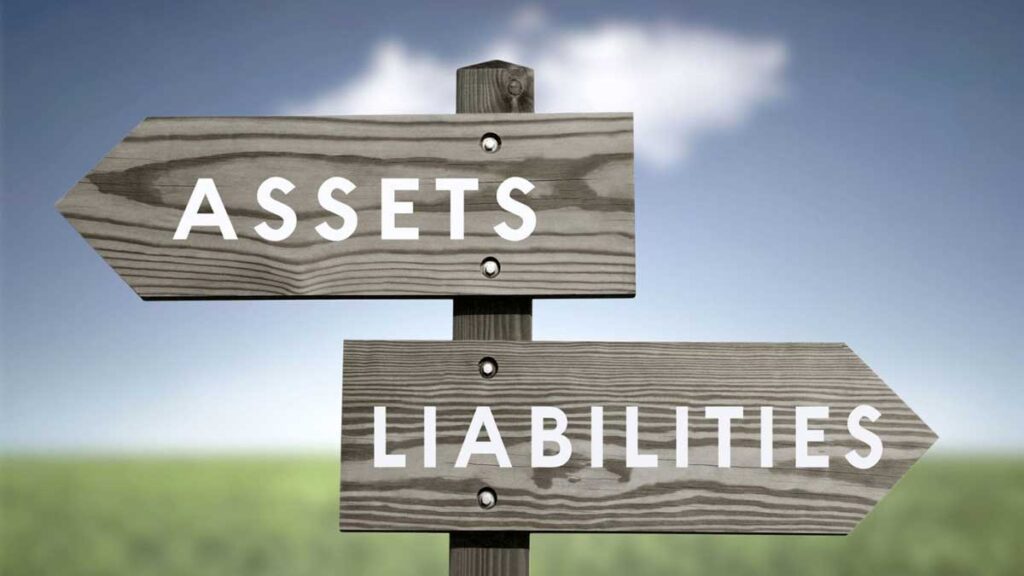
It’s not simple being a parent. You’re in charge of keeping a human alive, eating, and dressed, which should be more than enough. You also like to prepare kids to become billionaires for the future on top of that enormous responsibility. It’s simple to make a lot of mistakes.
Your child’s upbringing will have a significant impact on who they become, including how successful or unsuccessful they are financially.
These are some of the actions you should take right away if you want to ensure that your child grows up to be wealthy or, at the very least, with money. You might not know but your kids also might have thought ’How to become a billionaire as a kid’. So here are tricky ways to prepare kids to become billionaires.
1. Relocate To The Most Excellent Neighborhood You Can Afford

Moving their kids to an area with top-notch schools, greater job opportunities, and the chance to develop positive relationships with peers who value education, effort, and success is the best thing parents can do for their kids. It should be noted that you don’t even need to be rich to do this.
Even if it is debatable, data shows that relocating to a better area is a more cost-effective investment than tutoring and extracurricular activities like piano lessons.
According to Ann Owens, a sociologist at the University of Southern California, “forty to fifty years of social science research shows us what crucial context communities are, so buying a home in a safe and respected area is probably one of the most crucial things you can do for your kid.” “On whether purchasing all of these additional items matters, there is conflicting data. But moving into a good community has many benefits.”
Some advise you to purchase the cheapest home in the best area, but that decision could not work out. To find a home in a family-friendly area, if you can’t afford one in a posh one, look for neighborhoods offering affordable housing.
2. Give Them Things To Do

My parents constantly gave me tasks to complete when I was growing up, whether it was mowing the lawn, bringing out the garbage, cleaning the dishes, walking the dog, or folding laundry. Thankfully, they didn’t stop, even though I hated it.
It taught me the importance of perseverance and teamwork to complete tasks; one of our young children cleaned the dishes while another dried them. Most significantly, it gave me a sense of responsibility.
Lythcott-Haims, a former Stanford University dean of first-year students and the author of ‘How to Raise an Adult,’ said, “If children aren’t cleaning the dishes, someone else is probably doing it for them. They are therefore relieved of not just doing the work, but also of understanding that each of us must contribute to the greater good, “she explained.
3. Create A Savings Habit

There are many kids billionaires in the world. They all have one thing in common. That is a saving habit. Spending will probably be a part of your children’s first financial experiences. They observe your use of it to make purchases, even those for them. Therefore, it’s critical to instill in kids that money shouldn’t simply be used for investments; instead, it should also be saved regularly.
Saving money isn’t merely a smart financial habit to develop. Saving teaches self-control and delayed reward, according to Shane. Saving teaches planning and goal-setting. Saving requires being organized. Savings promotes independence and security.
By providing a piggy bank or savings container where your children may put away coins or cash, you can encourage them to develop the habit of saving. Then, encourage your children with brief, simple messages. Shane gives the following examples:
- A good habit is saving money.
- Savings is something I enjoy doing.
- Saving money and investing in my future feels nice.
According to Tim Sheehan, co-founder, and CEO of Greenlight, a debit card for kids with parental restrictions, you’ll probably have better success encouraging young children to save for short-term objectives—like a gift they truly want—than for the future.
The father of four claims that by encouraging his children to make short-term objectives while they were young, he could teach them the importance of postponing gratification. They may now save for longer-term objectives as they become older.
By promising to match their savings dollar for dollar or to a set percentage, parents may also urge their children to save more if kids are old enough to transition from a piggy bank to an actual bank. With the help of prepaid debit cards and apps, parents can give money to their children while also paying interest—at a rate of their choosing—on any money the children decide to save.
4. Encourage Children To Make Wise Financial Decisions

John established an allowance system for his children to teach them how to live on a budget, in addition to teaching them that money is earned. His two youngest kids, ages 16 and 11, would persistently ask for money and “spend like drunken sailors,” according to John. He explained to them that their allowance was the only money they would receive and that it was their responsibility to handle it.
It miraculously worked, he claims. An app is used to track how much money is coming in and going out, as well as how much is being saved. They will benefit from knowing how to budget now when they enter the workforce, according to John.
Since they began receiving an allowance, Mike has given his kids the freedom to manage their finances. He presented each person with a jar for spending, saving, and donating. Although Mike didn’t say how much, he instructed his children to put some of their money in each jar. They were left to make a choice.
Mike always wanted to prepare kids to become billionaires. Mike also teaches his children that spending doesn’t necessarily require purchasing items you desire. He wants kids to understand that when they are adults and have the option to hire someone to complete tasks for them, they will have to spend money on items they need. So it will cost his kids if they don’t help out around the house in the ways that are expected of them.
They are paying their parents to carry out those tasks on their behalf. The funds are taken from their allowance. I wanted them to decide what they were and weren’t prepared to spend money on, he adds. “I want them to understand that every decision will impact them. Decisions are crucial to personal finance.
5. Create Opportunities To Make Money

Kids must have their own money so they may practice making financial decisions. Allowances can help with it. However, you should consider having your children perform certain tasks to earn their allowance. Shane asserts that “just about everyone regards money they make differently from the money they get.”
Both Mike and John said they wished for their kids to understand how to generate money. The kids are expected to assist as a family. Thus they sometimes have to perform unpaid tasks. They must, however, accomplish specified responsibilities to get paid.
According to John, his two youngest children, who are still living at home, receive a weekly allowance in a sum proportional to their ages. Initially, Mike did that for his children, but he claims they now get a “wage” transferred straight into their bank accounts each month. He claims his children have convinced him to give them more tasks around the house in exchange for pay rises.
6. Start Early With The Foundations

Since 2001, Shane has used his fictional character Sammy Rabbit to educate children about financial literacy. He has discovered that it is best to educate a kid about money as soon as possible. According to studies, money habits and attitudes are already developed by the age of seven. Therefore lessons should start earlier than that, he advises.
You should introduce your children to coins and money once they are old enough to understand that it is not appropriate for them to eat pennies. Describe what money is and its purposes. It’s more effective to explain how money works to them. So let them see your cash purchases.
Explain to your children that you are using your money to make purchases, even if you pay with a debit or credit card. When his children were preschoolers, Chase Peckham, the San Diego Financial Literacy Center’s director of community outreach, did this with his two children.
Mike would show his kids the receipts from the purchases they made while they were shopping. He claims that they developed a habit of doing it repeatedly. They began to understand as they grew older. That is how we started using money.
According to Mike, his kid used the receipt approach to understand how money worked by the age of 4. His daughter was harder to communicate with. But by remaining constant, he could predict when “the light bulb would go on” for her, and it did.
7. Display Sustainable Financial Behavior

The financial lessons you teach your children are crucial, but so are how you handle and talk about money around them. You convey conflicting statements to your children, for instance, if you complain about spending too much on some items and then take them shopping.
Instead, be careful to show your kids how to behave with money by doing so yourself. Shane claims that his father not only encouraged him and his siblings to help out around the house but personally jumped in to provide a hand.
My father helping me wash vehicles and mowing the lawn throughout my childhood is one of my best memories, adds Shane. He would also bring up such incidents while talking to my brothers and me about the value of work and money management. He would say, “It doesn’t matter how much money you make; it’s what you do with it that counts.”
They must observe you make wise financial decisions if you want your kids to learn excellent spending and saving practices. In other words, live what you teach. And consistently teach. Teaching your kids about personal money may be a lengthy process. However, you may establish helpful behaviors in your children if you make an effort and consistently transmit a clear message about money.
8. Educate About The Difference Between An Asset And A Liability.

Poor people don’t understand the difference between good and bad purchases. After earning money, poor people immediately spend it. You stay poor by doing that.
Let’s clarify in the simplest terms possible:
- An ASSET = generates income
- While a LIABILITY = An expense to you
The issue is that those in poverty are unaware of what defines a liability. For instance, your residence and the vehicle you use to shop for groceries both have liabilities. They cost you money to run even if they don’t bring in any money for you.
The same is true for your brand-new iPhone, expensive clothing, flat-screen television, and anything else you bought excitedly.
The pursuit of bigger possessions takes up all the time and resources of the wealthy. Purchasing a rental apartment that brings in income, finishing a novel that will bring in money once published, buying a stake in a thriving company, and more.
But don’t the majority of the wealthy own expensive vehicles and homes? Does it not contradict what you are saying?
They possess luxury, that’s true, but please pay close attention since this is crucial.
THE ASSETS pay for the LUXURIES!
Rich people never use their own money to purchase luxury items. Want a brand-new expensive car? Find a way to lease a car and pay for it with the rent from the two flats you own.
In this manner, you will still have income after selling the car. There is a significant behavioral difference here. When money starts rolling in, concentrate on investing rather than consuming it.
9. Teach Generosity

Anyone who wants to get a lot must also be able to give. I crossed Embarcadero from my office to see SF Bay with my middle kid, who was around 11 at the time.
There was just one person there, a man in his late 40s who had one of the seams on his pants completely torn open. He was proficiently playing the spoons. We started conversing. He had just recently been released from San Quentin Prison. I told him it was time to celebrate.
We brought him up to my office for a shower, took him shopping for clothing, out to supper, and gave him money for a hotel room. I reminded my kid on the way home that the amount of money I paid the man was small in comparison to the time we provided him.
The only true wealth you own is your time, so if you get the chance to utilize it properly for others, take it. Giving money without giving time might be a way to isolate yourself.
10. Teach Them They’re Not Entitled To Anything

While the poor always seek out someone else to take care of them, the rich know that the world may take everything away from them if they are not performing.
Undoubtedly, there are benefits to being born into a wealthy family. You have access to greater resources and tools, and you are not concerned about meeting your fundamental requirements. Still, you also expose yourself to new dangers that poor people are not concerned about. If you’re not careful, you stand to lose a lot more, so the pressure is constant.
The wealthy must educate their children that, while having an advantage in life, they still have a long way to go and should keep their attention on progress rather than merely keeping up with the pace. The decision to succeed in life is ultimately up to them; Daddy’s money can only get them so far.
The third generation typically sees the collapse of families with children who feel entitled. Someone who is incredibly hungry and works hard to accumulate riches comes first.
Second, the belief that all their offspring need to do is retain the money pervades their upbringing.
Finally, the third generation has lost its need for hunger, believes it is entitled to achievement without effort or sacrifice, and often spends its money foolishly.
You may prevent this mistake by teaching your children the lessons from this article.
Related: 53 Legit and Easy Ways to Make Money at 13 Year Old
Conclusion
Have you ever considered how to accumulate wealth as a child? You have, I’m sure. But how to become a billionaire as a kid. There are many children who believe they will be millionaires when they grow up. Of course, not all of them will have the opportunity to become billionaires when they are adults. Most people don’t become billionaires as adults because they didn’t succeed financially as children, which is frequently the case. We have Help you on how to prepare kids to become millionaires as a first step. Now it’s your responsibility to act.












